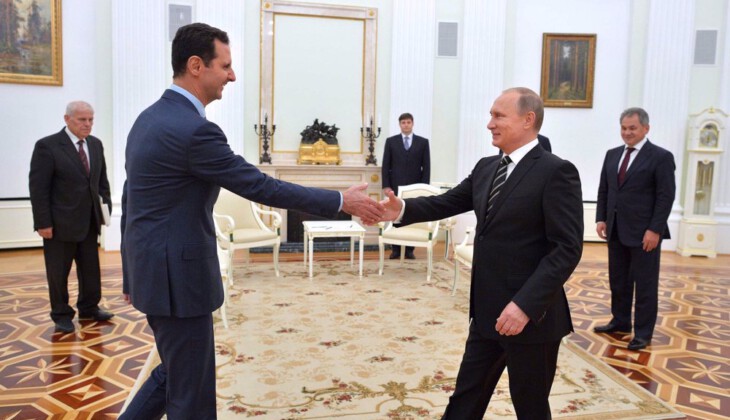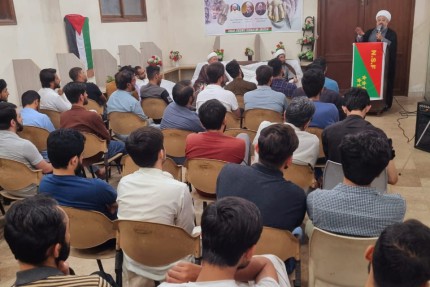Russia vetoes Western resolution on Syria aid for bypassing Damascus

Russia has vetoed a West-backed draft resolution that called for an extension of aid deliveries from the United Nations to Syria through Turkey without the consent of Damascus.
The vote held at the UN Security Council on Friday sought to extend cross-border aid to the terrorist-held northwestern province of Idlib by a year, bypassing the Syrian government.
“We regret that the efforts of the delegations of Ireland and Norway, the pen holders on the humanitarian dossier, didn’t find the best way of resolving the issue,” said Russia’s deputy envoy to the UN Dmitry Polyanskiy, arguing that the resolution was not in Syria’s interests.
Thirteen UN Security Council members backed the Western draft resolution, while Russia opposed it and China abstained from the vote.
The UN Security Council has been extending the Mechanism for Cross-Border Aid Delivery into Syria (CBM) since 2014.
Syrian President Bashar al-Assad’s government has repeatedly denounced the cross-border mechanism as a violation of Syria’s sovereignty and a tool to advance Western agendas in the country.
Moscow and Beijing have generally agreed, contending that the UN authorization violates Syria’s sovereignty and the aid to opposition-held territories should instead be routed from Damascus.
After vetoing the resolution, which was proposed by Norway and Ireland, Russia presented a competing resolution that proposed extending the aid by only six months.
China voted in favor of the proposal, while the US, Britain, and France cast their vetoes against it. The resolution thus failed to make headway after a double veto by two veto-yielding members.
Polyanskiy blasted the West’s “stubbornness” and asserted that the West-backed resolution “ignored the sovereignty of Damascus.
Comment
- Behind the Scene of the Attack in Oman, Operating Schemes that Intend to Destabilize the Country
- Trump’s Assassination Was a Ridiculous and Pre-organized Drama
- The Syrian senior analyst Views Towards the Letter of Iran’s President -Elect to the Secretary General of Hezbollah of Lebanon
- The hard way to political agreement in France/ Will Macron remain in power?
- Navigating the Caspian: Energy, Trade, and Geopolitical Harmony
- Behind the Scene of the Attack in Oman, Operating Schemes that Intend to Destabilize the Country
- Trump’s Assassination Was a Ridiculous and Pre-organized Drama
- The Syrian senior analyst Views Towards the Letter of Iran’s President -Elect to the Secretary General of Hezbollah of Lebanon
- The hard way to political agreement in France/ Will Macron remain in power?
- Navigating the Caspian: Energy, Trade, and Geopolitical Harmony
- Holding Public Court in Damascus to Put the Zionist Regime on Trial
- Boycotting Israeli Athletes for the Olympics in France Is Indispensable
- Iraqi Media Activists Arrested in Saudi Arabia/ Using the Hajj pilgrimage for settlement with the opponents
- Syrian Journalist and Author Tabib Ahmad Al-Darzi’s Analysis on Ali Bagheri’s Trip to Syria
- What Does it Mean on the Verge of Collapse and Has Israel Reached This Stage
- We Stand in an Era of Fundamental Changes/the World’s Political Literature is Changing
- The Art of Soft Power: How Khomeini and Khamenei Used Words to Transform the World
- Mey Sobhi Khansa’s views towards the Hague court verdict and the martyrdom of I R Iran president
- Behind the Scene of the Attack in Oman, Operating Schemes that Intend to Destabilize the Country
- Trump’s Assassination Was a Ridiculous and Pre-organized Drama
- The Syrian senior analyst Views Towards the Letter of Iran’s President -Elect to the Secretary General of Hezbollah of Lebanon
- The hard way to political agreement in France/ Will Macron remain in power?
- Navigating the Caspian: Energy, Trade, and Geopolitical Harmony
- Holding Public Court in Damascus to Put the Zionist Regime on Trial
- Boycotting Israeli Athletes for the Olympics in France Is Indispensable
- Iraqi Media Activists Arrested in Saudi Arabia/ Using the Hajj pilgrimage for settlement with the opponents
- Syrian Journalist and Author Tabib Ahmad Al-Darzi’s Analysis on Ali Bagheri’s Trip to Syria
- What Does it Mean on the Verge of Collapse and Has Israel Reached This Stage




